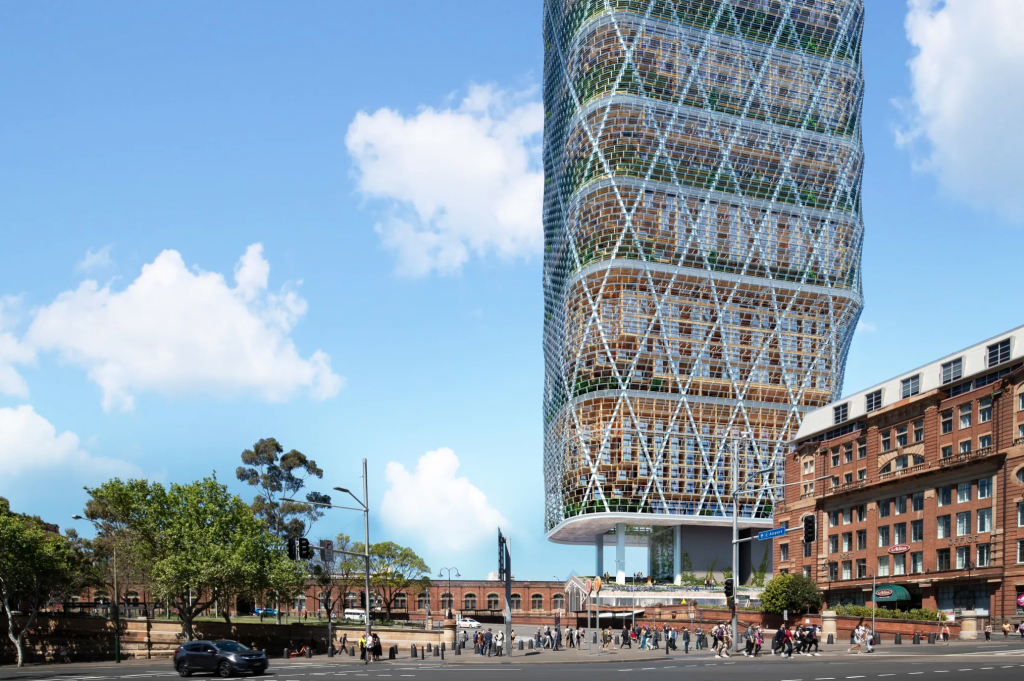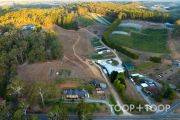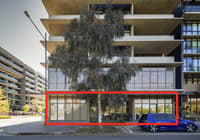
Atlassian to build $1.4b hybrid-timber office despite work-from-home push
Despite going all in on its staff working from home, Tech giant Atlassian has signed a deal for a sustainable, worker-friendly, “hybrid timber” headquarters – a new generation office tower in which each four-storey section is segmented into “habitats”.
The $US65.7 billion Nasdaq-listed firm has struck a deal with Australian office landlord Dexus to build the 40-level skyscraper at 8-10 Lee Street in Sydney’s Central Station tech precinct.
Atlassian will take a 15-year lease and use the building as its main headquarters.
The commissioning of the futuristic new office comes after the project management software giant’s billionaire co-founder and co-chief executive, Scott Farquhar, said earlier this year he had only been in the office three times over the previous 12 months.
The company has fully embraced the work-from-home model, implementing a “Team Anywhere” policy in which its 5700-strong global workforce can work from any location or country where it has a corporate entity.
The software giant already occupies a famously worker-friendly headquarters in Sydney’s George Street, which it will move out of in 2026 when the new structure is complete.
The new tower, with 75,088 square metres of floor area, is one of the next generation of pandemic-conscious office buildings designed to enhance occupants’ wellbeing by providing plenty of naturally ventilated areas.
It was conceived by New York-based SHoP Architects in partnership with Australian firm BVN and will target a 6-star NABERS Energy and 6-star Green Star design rating.
On the lower levels it will have shops and a new YHA accommodation, as well as access to public spaces around Central Station.
Dexus chief Darren Steinberg said the Atlassian tower was an example of future workplaces and “is aligned with our purpose of creating spaces where people thrive.”
“We look forward to welcoming Atlassian as a new customer and co-owner onto our platform and building out our developments within the Tech Central precinct.”
The $11 billion ASX-listed diversified Dexus is the largest office landlord in the country and has been a strong advocate of getting workers back to the City to drive collaboration and culture, which is harder to do when working at home.
While it has been focusing on expanding other sectors, such as healthcare, the office assets remain the key earnings growth engine through rent collection and management fees.
In Melbourne it has developed the $1.5 billion 80 Collins Street site and last year partnered with Singapore’s GIC to buy a half stake in landmark skyscraper Rialto Towers, giving a $644 million boost of confidence to the market.
Mr Steinberg said Dexus will act as the development manager of the tower and take responsibility for delivering the project, fully funding its construction costs. Dexus will hold a long-term equity stake in the tower alongside Atlassian.
Total project costs are expected to be around $1.4 billion. The deal is subject to gaining planning and government approval, which are expected to be satisfied by the end of this year. Construction is expected to start in early 2022 and reach completion in early 2026.
Dexus will fund the costs of the development through debt facilities and may introduce a thirdparty to provide capital, Mr Steinberg said. It will have no impact on Dexus’s adjusted funds from operations or distribution per security in financial year 2022, he said.
Central Place Sydney is 50 per cent owned by the Dexus Office Partnership (of which Dexus owns half) and 50 per cent by Frasers Property Australia. The Central Station area has been ear-marked as Sydney’s “silicon valley” to house start-ups, scale-ups and innovation ecosystem partners in 250,000 sq m of office space.
Macquarie Securities analyst Stuart McLean said access to a high-quality development with a 15-year lease and a strong tenant covenant is a positive for Dexus, “albeit we remain cautious on the speed in recovery for office markets”.











